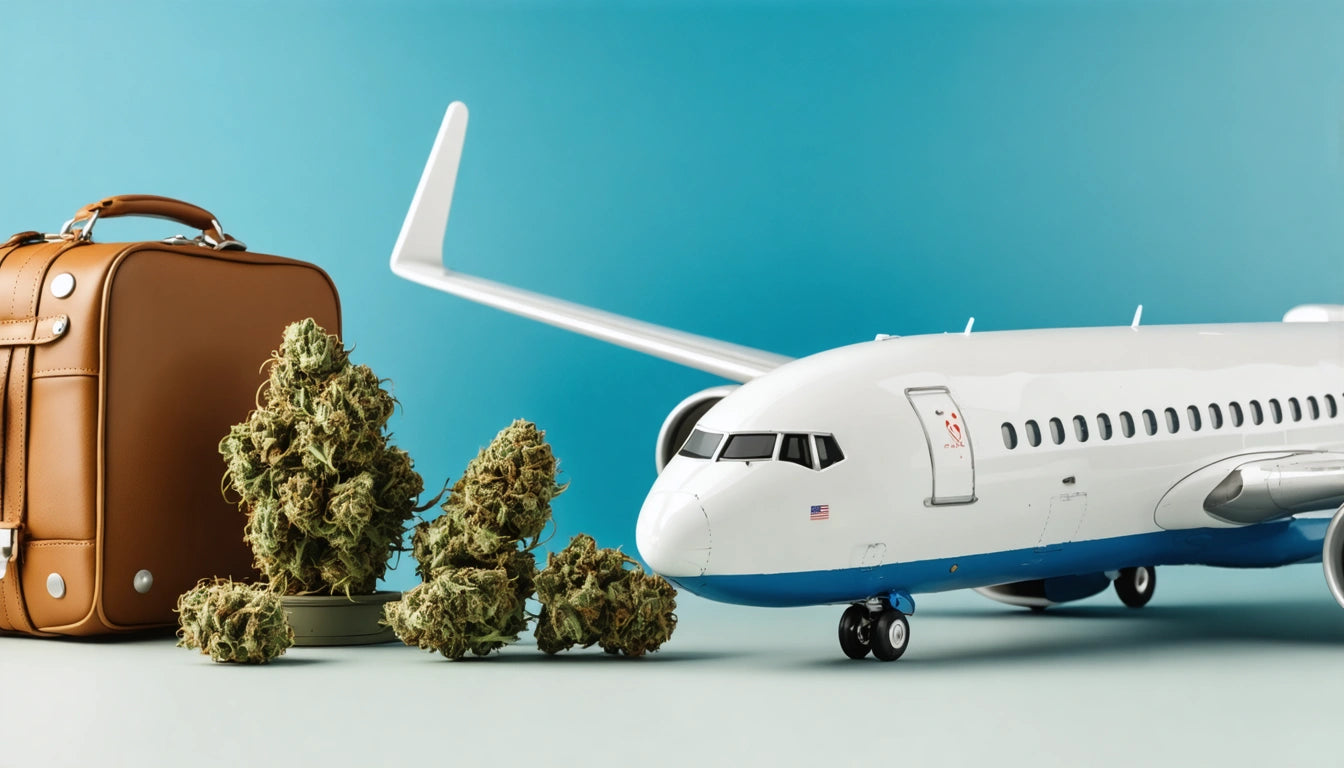Table of Contents
- Federal vs. State Laws: Understanding the Legal Conflict
- Air Travel Restrictions and TSA Policies
- Driving with Cannabis Between States
- Medical Cannabis Considerations for Travelers
- Storage and Packaging for Discrete Transportation
- Legal Alternatives When Traveling
- The Future of Cannabis Travel Regulations
Traveling with cannabis within the United States presents a complex legal situation that can vary dramatically depending on your method of travel, destination, and even the type of cannabis product. While many states have legalized cannabis for medical or recreational use, federal law still classifies it as a Schedule I controlled substance, creating significant legal risks for travelers.
Federal vs. State Laws: Understanding the Legal Conflict
The fundamental challenge when traveling with cannabis stems from the conflict between federal and state laws. According to cannabis travel legality guidelines, even if you're traveling between two legal states, crossing state lines with cannabis remains federally illegal.
This creates a patchwork of regulations where:
- Cannabis may be legal in your departure state
- Cannabis may be legal in your destination state
- Yet transporting between them constitutes federal drug trafficking
Each state maintains its own specific regulations regarding possession limits, product types, and public consumption. What's permissible in California might be strictly prohibited in neighboring states, even those with their own cannabis programs.
Air Travel Restrictions and TSA Policies
Flying with cannabis is particularly risky because airports and airplanes fall under federal jurisdiction. The Transportation Security Administration (TSA) operates under federal authority and is required to report cannabis discoveries to law enforcement.
However, TSA has stated that their security officers focus primarily on detecting potential threats to aviation security rather than actively searching for cannabis. Their official policy indicates that if they incidentally discover cannabis during security screening, they will refer the matter to local law enforcement, who then apply state laws.
This creates an unusual situation where enforcement can vary significantly depending on the airport location and local policies. Some airports in legal states have installed "amnesty boxes" where travelers can dispose of cannabis products before security without legal consequences.
Driving with Cannabis Between States
Driving with cannabis between states presents its own set of challenges. Even when traveling between two legal states, the act of crossing state lines with cannabis technically constitutes interstate drug trafficking under federal law.
Additional considerations include:
- Border checkpoints in some states where vehicles may be searched
- Varying open container laws that may apply to cannabis
- Potential DUI charges if driving under the influence
Understanding cannabis impairment and driving regulations is essential for anyone considering transporting cannabis by car.
Medical Cannabis Considerations for Travelers
Medical cannabis patients face additional complications when traveling. While some states offer reciprocity for out-of-state medical cannabis cards, many do not. This means that even with valid medical documentation, patients may not legally purchase or possess cannabis in their destination state.
For medical users, it's important to understand:
- Whether your destination state recognizes out-of-state medical cards
- Local possession limits for medical patients
- What specific products are legally available to medical patients
The distinction between medical and recreational cannabis becomes particularly relevant when traveling, as different rules may apply to each category.
Storage and Packaging for Discrete Transportation
If traveling within a legal state (not crossing state lines), proper storage and packaging are essential. Cannabis should be stored in sealed, child-resistant containers and kept in the trunk or locked glove compartment when in a vehicle to comply with most states' open container laws.
Many consumers use specialized cannabis storage bags that provide odor control and discrete transportation options when moving within legal jurisdictions. These packaging solutions help maintain freshness while minimizing unwanted attention.
Proper storage also helps prevent cannabis from degrading during travel, maintaining its potency and terpene profile.
Legal Alternatives When Traveling
Rather than risking legal complications by traveling with cannabis, consider these alternatives:
- Research local dispensaries at your destination if traveling to a legal state
- Explore hemp-derived CBD products which are federally legal (containing less than 0.3% THC)
- Investigate delivery services that may be available at your destination
Understanding the difference between cannabis and hemp can help travelers identify which products may be legally transported across state lines.
The Future of Cannabis Travel Regulations
As more states legalize cannabis and public opinion continues to shift, travel regulations may eventually become more accommodating. Several potential developments could reshape cannabis travel in the coming years:
- Federal rescheduling or legalization would fundamentally change interstate transport rules
- Standardized testing and labeling requirements could facilitate reciprocity between states
- Interstate commerce agreements between legal states might create protected travel corridors
Until these changes occur, travelers should prioritize understanding and following current laws to avoid potentially serious legal consequences. When in doubt, the safest approach is to purchase cannabis legally at your destination rather than transporting it across state lines.











Leave a comment
All comments are moderated before being published.
This site is protected by hCaptcha and the hCaptcha Privacy Policy and Terms of Service apply.